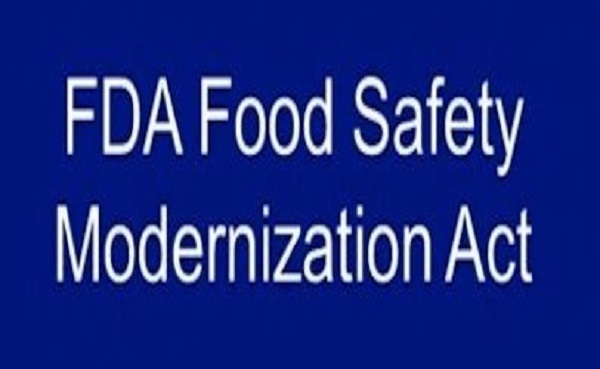The U.S. Food and Drug Administration (FDA) has issued the first two final rules in the Food Safety Modernization Act (FSMA) – cGMPs and Preventive Controls for Human Food, and cGMPs and Preventive Controls for Animal Food.
What are these rules?
The Preventive Controls for Human Food Rule sets new safety requirements for facilities that process, package and store food for human consumption. It revises cGMPs and clarifies the definition of “farm” to cover two types of farms: primary production farms and secondary activities farms, which is central to whether an entity has to register as a food facility and, thus, become subject to the new requirements for hazard analysis and risk-based preventive controls. It also requires food and beverage facilities develop a written “Food Safety Plan”.
The Preventive Controls for Animal Food Rule specifies the safety requirements for facilities manufacturing animal feed and revised cGMPs. These two rules are the central aspects of the FSMA.
There are a host of other rules in the pipeline, which shall be introduced over the remaining year and in 2016. Compliance with these regulations isn’t just useful anymore, it’s essential. The latest outbreak of salmonella in Chipotle Restaurants, and the Blue-bell ice cream Listeria outbreak, justifies the need for strong food safety practices.
Why should you care?
FSMA regulates current good manufacturing practices (cGMP), Hazard Analysis and critical control points for a major part of the food industry. However, the FDA faces severe funding shortages for FSMA. The president’s budget request for fiscal year 2016 asks for a $109.5 million increase for the FDA. Despite this, the FDA’s position is clear. Even though FDA lacks funding to conduct food safety inspections and audits very frequently and to oversee changes to the new rules, once food safety issues with companies come to light, the FDA aims for strict enforcement through huge fines, penalties and strict legal actions. Even though the FDA may not be able to conduct periodic inspections due to lack of funds, defaulting companies can expect a visit by FDA officials, penalties and fines and eventually, an indictment by a U.S. Attorney.
What’s the timeline on compliance?
Very small organizations (those with less than $1 million in annual sales) have up to three years to comply with the rules, small businesses (with less than 500 employees) have two years to come up with food safety programs that are in compliance with FSMA rules, and the rest (businesses with 500+ employees) have one year. Food Safety professionals will have quite a task ahead to ensure their organizations are compliant with changing rules.
What often makes the job of food safety professionals especially challenging is the fact that until there is a crisis, getting higher level management and company boards to take proactive measures is extremely tough. However, change is in the air, with FSMA’s new rules, CEOs and boards of directors will find that non-compliance is more expensive to the bottomline than compliance.
What’s the cost of non-compliance?
Thinking in terms of more concrete figures, the FDA may charge fines if they need to return for additional inspection or for recall follow-up, with the amounts being $217 per hour for domestic travel and $305 per hour if foreign travel is required. An OSHA penalty could cost up to $7,000 and can go up to a whopping $70,000 for repeated violations.
It’s not just the monetary areas that need concern organizations. A more aggressive prosecution of cases, along with resulting lawyers’ fees, and possibly, compensation payouts can put a serious dent in even the biggest company’s bottom line.
Firms that export solely to the U.S. can lose their entire market if an outbreak of food borne illness occurs from their product. Even for domestic firms, the costs pile up as consumers switch to competitors, not just in the short run but also permanently. Importers who are deemed as being in non-compliance can be placed on the federal “watch” list.
Also important to remember, FDA records are in the public domain and can be looked up by any interested party, members of the press, food blogger/concerned mother, or someone even scarier. It’s crucial for all food safety consultants and professionals to remain updated on upcoming changes. Stay compliant with upcoming FSMA rules, as well as how to implement Food Safety plans with latest food safety programs from experts in the food industry.


